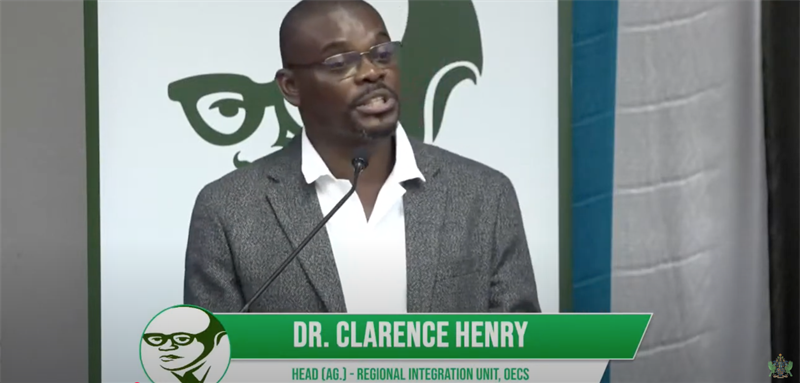Sir Arthur Lewis Commemorated in Annual Memorial Lecture
Sir Arthur Lewis, a Saint Lucian Nobel laureate in Economics, left an indelible mark on economic thought and development policy. His legacy was celebrated on January 23rd with the annual Memorial Lecture, delivered by Dr. Clarence Henry, a regional integration specialist and former economics lecturer. Dr. Henry’s address focused on the theme of “Economic Prosperity in the New Age,” exploring Sir Arthur’s perspectives on development economics and the key policy issues crucial for achieving sustained happiness.
Central to Sir Arthur’s economic philosophy was the fundamental principle that production is the bedrock of consumption and, consequently, happiness. He argued that the capacity to produce stems from a variety of factors, including access to natural and human-made resources, technology, and even geographical location. Dr. Henry emphasized this point, highlighting the interconnectedness of production, consumption, and well-being. He proposed that to achieve satisfaction and happiness, a society must first have the capacity to produce the goods and services that fulfill those needs. This capacity, according to Sir Arthur’s framework, is not limited to a single source but can be derived from various inputs and advantages.
Dr. Henry connected Sir Arthur’s views on economic development to the contemporary pursuit of happiness, drawing on examples from countries with high happiness index scores. He argued that robust and sustainable economic growth is the foundational element for achieving widespread happiness within a population. He used the metaphor of “seeds” to illustrate the various factors that contribute to economic prosperity, drawing parallels to the ingredients necessary for nurturing growth and development. This approach connected abstract economic principles with tangible examples, making the concepts more accessible and relatable.
The lecture underscored the importance of economic policy in fostering happiness. Dr. Henry delved into Sir Arthur’s insights on development economics, applying them to contemporary challenges and opportunities. He explored the essential policy interventions required to create an environment conducive to both economic growth and individual well-being. This analysis bridged the gap between theoretical economic concepts and practical policy recommendations, highlighting the real-world implications of Sir Arthur’s work.
Dr. Henry emphasized the ongoing relevance of Sir Arthur’s ideas, particularly in the context of the “new age.” He argued that while the economic landscape has evolved significantly since Sir Arthur’s time, the fundamental principles of production, consumption, and the pursuit of happiness remain paramount. He stressed the need to adapt and apply these principles to the challenges and opportunities of the modern era, including globalization, technological advancements, and changing social dynamics. This perspective positions Sir Arthur’s work not as a historical artifact but as a living body of knowledge that continues to inform contemporary economic thought.
The lecture concluded with a call to action, urging individuals and societies to embrace Sir Arthur’s vision of progress through hard work and a commitment to surpassing the achievements of previous generations. Dr. Henry emphasized the importance of continuous striving and improvement as essential ingredients for achieving sustained economic prosperity and, ultimately, widespread happiness. This message served as a powerful reminder of the enduring legacy of Sir Arthur Lewis and the ongoing relevance of his ideas for individuals, communities, and nations seeking to build a better future.
Share this content:












Post Comment